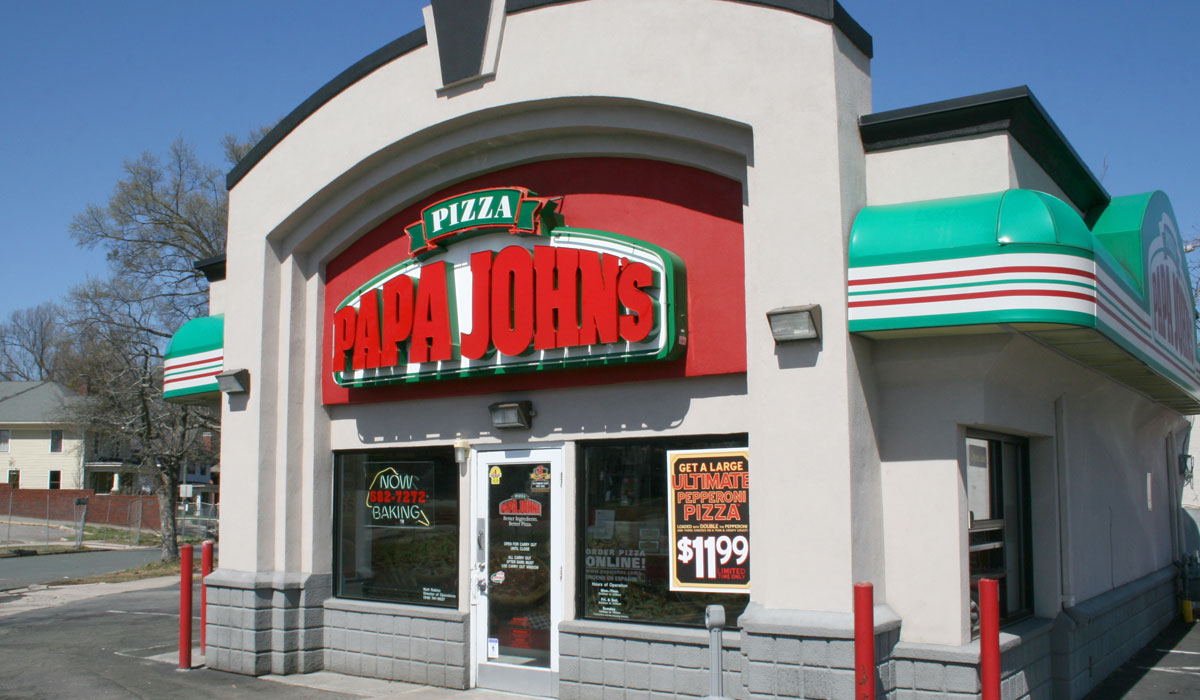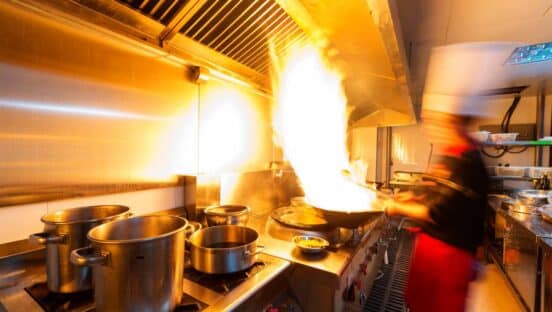Rumors of major strategic changes, including a possible sale, have swirled Papa John’s for the past year. The “culmination of a comprehensive process” arrived Monday for the 5,000-unit-plus pizza chain. Papa John’s announced that Starboard Value LP is making a $200 million strategic investment in the company, with the option to add another $50 million through March 29. In addition, the firm’s chief executive officer, Jeffrey Smith, is taking over as chairman of Papa John’s board. The chain is also expanding its board to include Anthony Sanfilippo, the former chairman and CEO of Pinnacle Entertainment Inc. The casino operator is now owned by Penn National Gaming Inc.
Shares Monday morning soared as much as 12 percent on the stock market following the news.
Starboard is no stranger to the restaurant industry or to the turnaround process. In a rare shareholder coup in 2014, the company took control of casual-dining company Darden’s board and pushed for operational changes, including better-tasting breadsticks at Olive Garden. Within 18 months, the company saw its stock rise 47 percent. Smith served as chairman of Darden’s board until April 2016.
READ MORE: Papa John’s says customer sentiment is improving.
Staboard had, at one point, about a 9 percent stake in Darden and waged a proxy fight that ended with it replacing the company’s 12-member board with its own picks. Olive Garden progressed from negative same-store sales to positive comps growth every quarter after Smith joined. It’s currently riding a 17-period streak of positive gains.
In the changes, Papa John’s Steve Ritchie is joining the board and will remain CEO. Seven of the chain’s directors are independent.
Papa John’s “began a process to evaluate a wide range of strategic options” in September. That same month, Reuters reported that Papa John’s reached out to potential buyers to ask them to submit offers. In November, The Wall Street Journal noted that Trian Fund Management LP, considered a serious potential bidder, took itself out of the running. Papa John’s didn’t receive serious interest from any parties wishing to buy the whole company, people familiar with the matter told The Wall Street Journal.
Papa John’s said Monday, “the board concluded that the investment agreement with Starboard was in the best interest of shareholders.”
Former chairman and CEO John Schnatter, who owns nearly 31 percent of the company’s stock, voted against the Starboard deal, per The Wall Street Journal.
“Our agreement with Starboard concludes a comprehensive strategic review conducted over the past five months to better position Papa John’s for growth, improve the company’s financial performance and serve the best interests of our stakeholders. This transaction provides the company with financial resources and strong and experienced directors on the bard in order to position the company for success over the long term. We believe we have found terrific partners to advance Papa John’s strategy, especially given their record of reinvigorating and growing premier restaurant and consumer brand companies,” said Olivia Kirtley, a member of Papa John’s Special Committee and most recently chairman of the chain’s board, in a statement. “Starboard’s investment represents a strong vote of confidence in Papa John’s, our people, our franchisees and the many opportunities we have ahead.”
Starboard has also taken activist roles in YahooI nc. and cybersecurity firm Symantec Corp. Rcently, it disclosed a 1.7 percent stake in Dollar Tree Inc.
Papa John’s plans to use about half of the proceeds from the investment to repay debt, with the remaining proceeds providing financial flexibility “that enables Papa John’s to invest capital to further advance its five strategic priorities of people, brand, value/product, technology, and unit-level economics,” the company said.
Starboard is making its investment through the purchase of new convertible preferred stock. This measures a stake of about 11–15 percent of Papa John’s outstanding common stock on an as-converted basis. And the company is giving qualifying franchisees the ability to purchase $10 million of the stock under the same terms as Starboard.
The financial picture
Papa John’s piggybacked the announcement with preliminary fourth-quarter results. For the full year, systemwide North America same-store sales dropped 7.3 percent, year-over-year. This fell in line with the company’s previously forecasted range of negative 6.5–8.5 percent.
In Q4, North America comps declined 8.1 percent. International fell 2.6 percent, and 1.6 percent for the full fiscal year.
Papa John’s also provided a sales update for the month of January (Q4 ran the three-month period that ended December 30). From December 31 to January 31, North America same-store sales were down 10.5 percent. International sales reported flat.
Papa John’s said the sales drop and disparity between North America and international sales “reflects the consumer sentiment challenges the brand has encountered in the U.S. In addition, the December and January sales were impacted by the conversion to the company’s new loyalty program and ineffective promotions in the heightened competitive environment.”
Papa John’s also said 2018 adjusted earnings per share, excluding the impact of restaurant divestitures and special charges, are expected to be near the low-end of its previous guided range of $1.30–$1.60 per share
“These results are disappointing to all of us, but we have a strong foundation built on quality and are confident in the great growth potential for the brand, particularly with the support of our new partners,” Ritchie said in a statement. “Our agreement provides new expertise and additional financial resources to invest in areas that we believe are important to our customers and the opportunities ahead. Quality and how our product brings people together will be front and center in our efforts. Our recently launched Philly Cheesesteak pizza, a new line of handcrafted specialty pizzas, premium ingredients, menu variety, and new, more modern creative advertising that emphasizes people and quality products are a few actions underway.”
Smith said Starboard believes Papa John’s has a strong foundation to build on, “with the best product in the space and a strong franchisee and customer base.”
“We applaud the actions that the board and management have taken to move the Company forward through a difficult transition,” he added in a statement. “We see tremendous potential for the company both in the U.S. and internationally. We look forward to providing leadership, sponsorship, and support to instill operational, financial, and corporate governance best practices, and working with the Papa John’s team to develop a disciplined long-term strategic plan while delighting our customers every day.”
Papa John’s dreary Q4 sales figures continue what’s been a tumultuous ride for the brand. In the previous quarter, Papa John’s North America same-store sales dropped 9.8 percent.
Papa John’s problems have accelerated since Schnatter railed against the NFL’s handling of anthem protests during a November conference call, suggesting it sagged the chain’s sales. “The NFL has hurt us,” he said. “And more importantly, by not resolving the current debacle to the player and owners’ satisfaction, NFL leadership has hurt Papa John’s shareholders.” The incident dropped Papa John’s stock 11 percent at the time, and Ritchie, who took over for Schnatter last January, said the consumer sentiment turned dramatically.
Then came Schnatter’s headline-busting decision to step down as chairman on July 11 in the wake of a report he used a racial slur during a May conference call between executives and the company’s then-marketing agency Laundry Service. Once the news hit, Ritchie said, the company saw “another precipitous drop of roughly 4 percent” due to the “very inexcusable and irresponsible comments from Mr. Schnatter.”
Papa John’s business decelerated in 2017 before the precipitous drop in November and December. In fiscal 2017, North America same-store sales gained 1.4 percent in Q2, 1 percent in Q3, and then declined 3.9 percent in Q4. Then the cliff drop:
- Q4: –8.1 percent
- Q3: –9.8 percent
- Q2: –6.1 percent
- Q1: –5.3 percent













